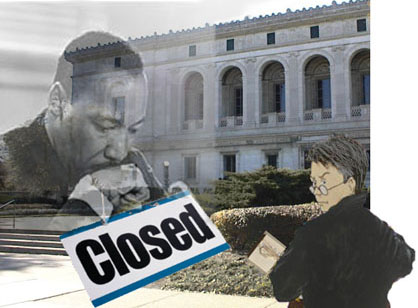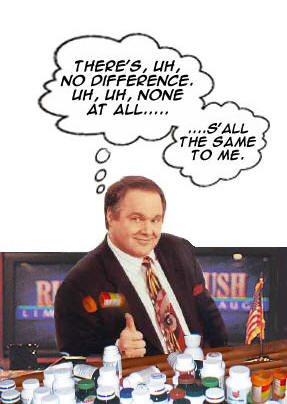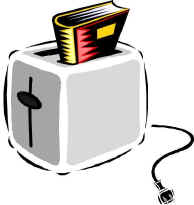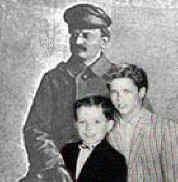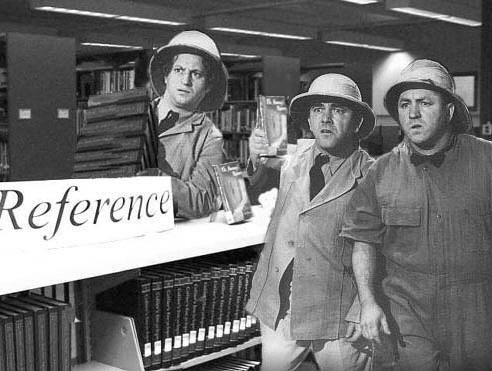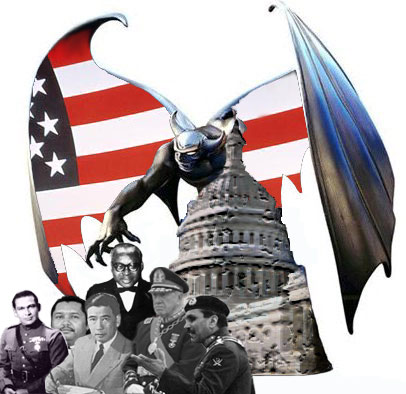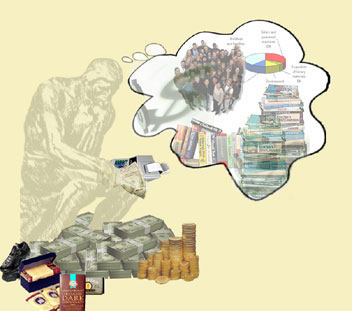Uncle Frank’s Diary
Number Six
9-11: We Didn’t Make Them Do It
I read the news today. Oh, boy.
Are we picking up at all from our emotional dragging following 9-11? For Uncle Frank, the sky has not been as blue, the sun not as bright, and ordinary tasks often more tedious than usual.
Although the progress of the war seems to be going well, the B**h Administration on the home front is practicing the same old threadbare Republican corporate welfare. Our great hero Attorney General Ashcroft appears happy to shred the Bill of Rights and dance on the pieces if it will help expedite the hunt for terrorists–this when he isn’t preoccupied with ripping the marijuana joints from the hands of California cancer and M.S. patients. Now there are some real threats to the public weal! Tom Ridge, minister of the Fatherland Security Office (oh, wait, sorry: that’s “Homeland” Security) appears completely clueless about how to achieve such security, and Secretary of Health Thompson looks equally adrift in the face of the bioterrorism specter.
Nevertheless, the war is going as well as things can go when they involve blowing up people. It is heartening to see ordinary Afghan citizens rejoicing in freedom from the Taliban as the noble, self-anointed sons of the Prophet abandon one city after another. Women are showing their faces, children are flying kites, and men are ogling pictures of movie stars: activities all outlawed by the religious perverts, funded by Osama bin Laden, who terrorized that miserable land for the past seven years.
As for Osama, my Swedish-American mother had a way with words, and I’m terribly sorry that I cannot recall how she said it in her original tongue. Nevertheless, Osama, if you’re reading this, let me give you the English translation of my mother’s Swedish imprecation: “Kiss me where I’m highest when I pick up sticks.”
I hope that isn’t too subtle for anyone.
Coffee and Carnage
Most days I go down to the kitchen at about 5:45 a.m. to feed the cats and to make coffee for my wife and me. I take the coffee upstairs, and we sit in bed drinking it while talking about the day to come, and the world at large. Generally the cats mosey up to join us.
In the first weeks following 9-11, our early-morning coffee talk dwelled on the current unpleasantness. We talked about anthrax, laser-guided bombs, and the question of retrieving portions of any of the passengers aboard the airliners that destroyed the World Trade Center. I guessed that there is nothing left of them but random molecules. A nearly 600-mph impact exacerbated by exploding jet fuel would almost surely atomize flesh and bone.
Such talk is unenjoyable but necessary, as is reviewing the events endlessly. We all carry in our heads mental movies of the WTC attacks. How many times have you seen the second jet slice into the building like a red-hot poker into a side of Velveeta?
As I go through the day, Sept. 11 is ever-present, a steady background drone in my mind that often leaps to stage front and center. When I realize that I have gone any length of time without thinking about it, I remark on the fact, so unusual is it. A week or so ago, while making the morning coffees noted above, I looked at the clock on the stove. It read 5:35. I realized that I had been up and conscious for five entire minutes before remembering Sept. 11.
Five minutes of unawareness: a prize of sorts.
Hauling the Newsjunk
On my commute, I listen to the news on NPR. When I reach my office in the library, the first thing I do, after checking my e-mail to see if there is any urgent university business I must tend, is to spend a few minutes with the war news in the New York Times online.
One of the pluses of being a reference librarian is that anything one knows about the world makes one better at the job. I think the Big U can indulge me a little here. After my mainline news fix, I go back to my e-mail to see if there’s an update from AlterNet (http://www.alternet.org) , the alternative news service. If there is, I scan the synopses, and click on the links that look most interesting or provocative. I’m then likely to take a look at my favorite site that rounds up critical news coverage of the Bush Gang, Jerry Politex’s Bush Watch(http://www.bushwatch.net/).
As the day goes on, I return to the news on the Internet several times to check on latest developments. If business is slow during my shift at the reference desk, typically 3-5 p.m., I may drop in on some foreign papers through News & Newspapers Online, a great site provided by the Walter Clinton Jackson Library of the University of North Carolina at Greensboro (http://library.uncg.edu/news/ ).
Yes, I’m a news junkie–and there’s plenty of junk to haul these days.
Let’s Not Make Excuses for People Who Try to Kill Us
Not the lightest of it is the curious response of many people on the political Left to the Sept. 11 attacks. I do not understand it. I do not grasp the logic behind what is trying to pass as a peace movement.
Several facts stand painfully clear in the bloody light following the attacks: Osama bin Laden and his henchmen really want to kill Americans. They want to kill all Americans, and intend to try to do that, to the best of their ability. They would be glad to kill Americans who support the bombing of the Taliban; they would be glad to kill Americans who advocate nonviolence.
It makes them happy to see us die. They want to kill your father, your mother, your brother, your son, your sister, your husband, your daughter, your friends, your coworkers, and just about everyone else you know. Anyone for whom this is an open question–do they really want to kill us?–has not paid attention.
Another fact that seems inescapable and undeniable is that the men who destroyed the World Trade Center and who flew into the Pentagon chose their actions from their own free will. We Americans did not make them do it. Yet how often do we see arguments from the Left implying that we did, in fact, make them do it through our ill-conceived foreign policies?
Yes, of course, the U.S. has made many inexcusable choices in its foreign policy. It is, nevertheless, third grade playground logic to contend that the events of Sept. 11 were the “fault” of the U.S. The “We made them do it” argument has as much merit as the claim that a woman was raped because she was “asking for it” by being in the wrong part of town after dark. Worse than illogical, such a line of thinking patronizes others by denying them free will. The men responsible for the Sept. 11 attacks made choices. At any time, up until the last moments, they could have chosen to do other than what they did. They freely chose to commit mass murder.
Everyone Has an Answer
Many critics of the current campaign deride the U.S. for its reliance on Middle Eastern oil. They point to our embarrassing cooperation with the oppressive governments of oil-producing states. What realistic alternative do they suggest? Are they themselves ready to pay for the consequences of life without this oil, so that the U.S. can be morally pure? Do they believe that the U.S. has the power to change these societies?
So many observers have good and certain answers. Such noted authorities on global strategy and moral philosophy as Fox “news” man Sean Hannity, the round mound of Christian virtue William (“On to Baghdad!”) Bennett, and the always-prescient Cal Thomas know exactly what needs to be done. They are all so much smarter than Uncle Frank; their answers must certainly must be well taken. On the other side of the fence, critics of U.S. behavior like Noam Chomsky (who is probably smarter and knows more than anyone) are equally certain of other relevant truths.
Uncle Frank sure wishes he were clever enough to feel such confidence in the products of his cogitation. Grasping and hoping, groping and thinking “Well, maybe…” is such a poor substitute for knowing for sure. W.B. Yeats had something to say about that in “The Second Coming,” but Hannity or O’Reilly or Chomsky or Mona Charen or any of those geniuses could have helped him say it better, probably.
On the Other Hand, Who Cares?
Everyone has an opinion, including opinions of aggressive indifference. I watched a portion of a television interview with several Egyptian women describing their responses to 9-11. One young woman succinctly summed up her feelings toward the WTC victims: “Who cares?” she said. None of that sappy “We’re all in this together business for her. “Who cares?”
I suspect that most Americans would not react with similar indifference to the mass murder of some 5,000 Egyptians. They would most likely, at the least, shake their heads, and say something about the event being a damned shame. Few would utter a remark as cold as the question “Who cares?” Most would care enough to dwell briefly on the terrible thought of 5,000 souls blasted and burned into oblivion while going about their daily business.
True, identifying with people on the other side of the planet presents some challenges. Distance is an effective buffer of anguish over the suffering of those one has never met. Some readers may recall the tidal wave that in December of 1970 swept to their deaths some half-million or so residents of what was then East Pakistan. The event’s remoteness, coupled with its overwhelming magnitude, made it impossible for most Americans to express more than pro forma regrets. Hearing of the event was like hearing about a catastrophe on Mars. However superficial their sense of that natural disaster, what Americans learning of it would have said of the pathetic victims, “Who cares?” Such a statement marks one as bereft of the most ordinary sense of shared humanity, the sense that, regardless of our differences, we all really are “in this together.”
The Bosom Serpent
Twisted religion, of course, is the bosom serpent of the present conflict. The Taliban and bin Laden raise religious perversion to an art form, but consider all the conscientiously self-professed “Christians” (Bennett, Thomas, Falwell, Robertson, Bush, et al.) who make much of the teachings of Jesus, until the chips are down and it’s time to live up to their professions. Ah, but then the dicta of Jesus–including turning the other cheek should one’s enemy swat the first–lie cast aside like so much detritus. Oh, the smarmy hypocrites of a shallow faith!
In spite of the ministrations of many years of Sunday school, Uncle Frank, faithless to the core, has never been sufficiently good or patient enough to follow the teachings of Jesus. On the other hand, he has not claimed to do so, particularly in the aftermath of egregious physical insult to his person, family, friends, or fellow citizens. Therefore, when he observed a sign outside a bowling alley advising that we “Bomb the Bastards!” he was inclined to say “Good idea,” without soiling his religious wraps.
Blame Casual Sex
So many bizarre notions float to the surface in troubled times. The “family values”-fixated columnist Maggie Gallagher, an “affiliate scholar” at the Institute for American Values, thinks casual sex is a big culprit in what she sees as the strategic contest between Islam and the West. Really. Casual sex, she contends, has undermined the West and weakened it before the selfless warriors and dutiful procreators of Islam.
A number of the bravehearts who destroyed the WTC refreshed their energies in the heart of the Great Satan by frequenting American prostitutes. Some of them spent their last night (before moving on to the pure company of the famous Celestial Virgins) partying with hookers, and arguing their prices. Ringleader Mohamed Atta enjoyed lap dances in strip clubs, and then argued about his bill. But maybe the selfless suicidalists pursued these passions earnestly, and not casually at all. Or maybe being in the U.S. infected them with bad family values. Maybe it’s Mickey Mouse’s fault that they felt compelled to purchase erotic gratification.
What a relief it must be to enjoy the largesse of the Celestial Virgins! We’ll have to ask Maggie Gallagher about that. She would know, being an affiliate scholar, and all.
Watch Your Tongue!
In times like these, it helps to take care with one’s words. As George Orwell pointed out in his classic 1946 essay, “Politics and the English Language,” our language “becomes ugly and inaccurate because our thoughts are foolish, but the slovenliness of our language makes it easier for us to have foolish thoughts.” Too many observers of the scene, both professional and lay, treat language carelessly, with effects that confound one’s efforts to think straight.
William Raspberry, a prominent liberal columnist whose work I often enjoy, recently wrote a generally sensible column on the need to understand that criticism of U.S. tactics in the struggle against terrorism does not mean that the critic is un-American or sympathetic with mass murderers. In that column, however, Raspberry referred to “the carpet-bombing calculated to render the Taliban vulnerable to its Afghani enemies.”
Raspberry wrote this weeks before the U.S. employed anything resembling carpet bombing in Afghanistan, yet he suggested that it was already a going deal. Loose language provokes mistaken thinking, and people on the Left and center are no more immune from carelessness than those on the Right.
This Is Not Vietnam
I believed by early 1967 that the U.S. war effort in Vietnam was an exercise in base criminal stupidity. I thought it was self-destructive, cruel, pointless, and doomed to failure. I believed that several of those responsible for its perpetuation, including Robert McNamara, should have gone to jail for crimes against humanity. I considered the U.S. war in Vietnam the most inexcusably moronic action ever undertaken by the nation, worse, in its own way, than the introduction of slavery or the quasi-official program to exterminate Native Americans. Thirty-four years later, I believe these same things about that wretched, unforgivable war.
Afghanistan is not Vietnam, but I fear that some of today’s peace activists confuse the dynamics of the two. Genuine U.S. interests were not at stake in Vietnam. Today, those interests are very obviously at stake in the struggle against terrorism.
During the Vietnam War, personal self-interest influenced the anti-war positions of many individuals. Why not? For those whose understanding of the war led them to regard it as an absurdity, and vicious to boot, opposition to the war very rationally featured a strong element of self-interest.
How does the self-interest of today’s peace advocates measure up? I have the uncomfortable feeling that an absence of good faith is at play. That the desire of the comfortable not to be afflicted with inconvenience, obligation, or possibly worse, leads some of these advocates to adopt positions not in keeping with what they know in their hearts to be true, i.e., that their nation and their fellow citizens’ lives–and, indeed, their own–are under direct threat by foreign enemies, and that a “peaceful” response will be welcomed by those enemies with further assaults and murders of the innocent.
To be blunt: I detect the fetid air of intellectual mendacity in the present peace response.
What’s Your Sign?
Many front yards in my neighborhood have sprouted signs with the statement that “We do not support violence against innocent people.” The signs depict an American flag and a moon and crescent.
How touchingly considerate. Presumably those of us in the neighborhood without such signs do support violence against the innocent. Or maybe we have a sense that the situation is a little more complicated than the sign-planters imply. For that matter, not to overlook the ubiquitous American flag-waving folk, the situation may be a little more complex than one that can be improved with an easy display of patriotic enthusiasm purchased at K-Mart for $12.95. For the record, we don’t have a sign in our yard, and we don’t have a flag, either.
Who, by the way, are the “innocent” against whom the U.S. is committing violence? The Taliban? The Taliban are a gang of pathological thugs who, aside from their broad-based inhumanity and willing sheltering of and cohabitation with murderers, for years waged a merciless campaign against half the population of Afghanistan in their quest to reduce the women of that nation to a status that would have been execrated even in the Dark Ages.
The Taliban treated Afghanistan’s women only marginally better than the Nazis treated the Jews. Afghan women could not attend school, learn to read, see a doctor, work outside the home–and those who stayed at home were often forced to paint their windows opaque so that they could not be seen from the exterior. It was a wonderful life for women in Afghanistan. I am sure Afghan widows reduced to begging for bread would not want us to disturb their pleasant peace by bombing Taliban troops.
Lies, Lies, Lies
In his essay, Orwell also wrote that “All issues are political issues, and politics itself is a mass of lies, evasions, folly, hatred, and schizophrenia. When the general atmosphere is bad, the language must suffer.”
Would anyone argue that today’s general atmosphere is anything but bad? Not to mention full of lies. Those in authority are undoubtedly lying to us. Those in political authority always lie to the public. They lied about the accuracy of “smart” bombs during the Gulf War. They lied about the effectiveness of the Patriot anti-missile missile. (Subsequent revelations have shown that the Patriot missiles didn’t work, although the American public was led to believe that they picked off incoming Scuds like cherries from a low-hanging branch.)
Lies, lies, lies. They’re par for the course. But not everything is a lie.
Even absent the WTC and Pentagon attacks, one might well argue that the U.S. had a powerful obligation to intervene forcefully in the Taliban’s continuing atrocious treatment of women. I’ll not pursue that argument here, but those who advocate peace and non-violence in the Middle East might want to reflect on how a peaceful response to the Taliban’s brutalization of women would persuade those thugs to adopt an enlightened, humane, or even milder, view of the rights of women. I do not believe for a moment that it would.
So we bomb the Taliban. Inevitably, some bombs have gone astray, killing those the Taliban have been oppressing, or those who have been courageously seeking to aid the Afghan people. We are engaged in a hideous endeavor. We must grieve for those whose lives we take mistakenly, and must recognize that the possibilities of ghastly outcomes are many, including the possibility (if unlikely) that some other state–some think Egypt–is responsible for harboring and encouraging the Sept. 11 culprits.
In Philip K. Dick’s memorable 1962 alternate history, The Man in the High Castle (available in the Vintage 1992 edition; ISBN 0679740678; $12), the United States lost World War II, and Germany and Japan divvied up the country right down the middle. What would have been the fate of the U.S. in WW II had counterparts of today’s non-violence and peace advocates persuaded the American government to refrain from armed action in the wakes of Pearl Harbor and the Nazi seizure of Europe? One suspects that Dick’s novel would not have been an alternate history, but a story based in fact.
Military action is often ugly, cruel, dangerous, and messy. It also, alas, sometimes becomes the best choice, if not the only choice, under particular circumstances. And it does have the power, on occasion, to solve serious problems. War ended slavery in the United States. It defeated Nazi Germany and Imperial Japan. It earned American independence from England. It has its uses.
What Do We Do Until Things Fall Apart?
The universe tends toward disintegration. Things fall apart. In all probability, existence can look forward to an eternity of small bits of rubble drifting aimlessly through the cosmos. Humanity pursues its pitiful, vain, self-important absorption in its affairs as though its choices bear ultimate consequence. There is no reason to think that they do. In the long run, nothing matters.
We, however, are in it only for the short run. In the short run, sometimes one must act, and so must nations, or be unable to wrest even a moment’s self respect from the absurd soup of existence. One thinks of the courageous passengers who refused to let the hijackers have their way, and forced their aircraft to crash in a Pennsylvania field rather than let it be used to destroy even more innocent lives.
Present future choices may not prove as lustrously obvious as those before that airplane’s passengers. The United States has reached a critical moment, and what it should do is not altogether plain. Those on the Left, like all conscientious citizens, must pay attention, reflect, and criticize carefully and publicly. But blaming the U.S. for the existence of terrorism, and for the events of Sept. 11, is irrational and condescending.
“We didn’t make them do it,” says Uncle Frank.
I think he’s right.
Uncle Frank’s Diary Home

